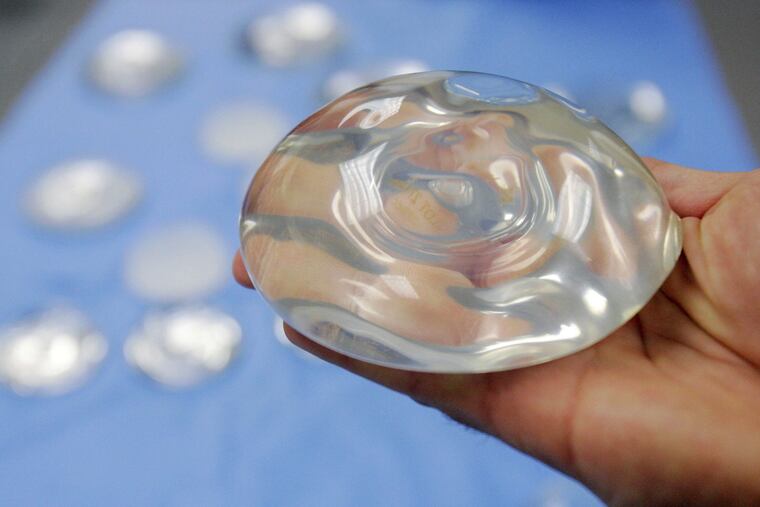FDA plans meeting on breast implant safety, but disputes new study of risks
Questions about the risks and benefits of breast implants are still unsettled. The FDA plans a public forum to tackle the controversial issue.

Women who believe their breast implants made them ill have been pushing the U.S. Food and Drug Administration for the last year to hold a public meeting on new information about the safety of the devices.
Now, the FDA has announced that it will convene one next year — even as the agency disputes a fresh analysis that links silicone gel implants to certain rare diseases.
The analysis by the University of Texas MD Anderson Cancer Center, published Monday in the Annals of Surgery, used data from follow-up studies that the FDA ordered implant makers to conduct beginning in 2006. That year, the FDA allowed silicone implants back on the market after 14 years of sales restrictions prompted by safety concerns.
The MD Anderson researchers concede their analysis has limitations because of serious flaws in the manufacturers' studies. Still, the researchers conclude silicone implants are associated with some rare autoimmune disorders and other conditions.
"We respectfully disagree with the authors' conclusions," Binita Ashar, the physician who heads the FDA's surgical devices division, said in a Friday news release that also announced the public meeting.
Jamee Cook, founder of the Facebook group Breast Implant Victim Advocacy, called the news release "contradictory," but applauded the agency for announcing an advisory committee hearing.
"I think we [advocates] played a part in the decision," Cook said. "I think our petition, signed by 20,000 women, played a part. And I think the increase in cases of ALCL played a part."
ALCL, or breast implant-associated anaplastic large-cell lymphoma, is a newly recognized cancer of the immune system that experts agree is caused by implants. Nearly 600 cases have been identified worldwide since 2011, when the FDA first warned about the rare malignancy.
MD Anderson has emerged as a leading center of ALCL treatment and research, and has focused attention on safety questions that remain unanswered.
For its part, the FDA has declared that implants are "reasonably" safe and effective, but the agency is working to set up breast implant registries and other surveillance methods because "more evaluation is required."
"We completely agree with the path forward that the FDA has laid out to get more information," including the registries and the advisory committee meeting, said MD Anderson plastic surgeon Mark W. Clemens, senior author of the new analysis.
One of the limitations of the analysis is the scant follow-up. The two primary implant makers — Allergan and Mentor — enrolled nearly 100,000 women who underwent breast enlargement or reconstruction, with a mandate to follow them for a decade. But more than half the women were "lost to follow-up" within three years.
Nonetheless, MD Anderson called the new analysis "the largest study of long-term safety outcomes." Compared with women without implants, those with silicone-filled devices seemed to have higher rates of Sjogren's syndrome and rheumatoid arthritis, both auto-immune disorders; of a connective tissue disorder called scleroderma; and of melanoma.
The associations do not prove implants were the cause of the illnesses, the researchers noted.
The theory that implants can trigger chronic disorders in susceptible women remains controversial. In the 1990s and early 2000s, billions of dollars in product-liability settlements were paid to compensate hundreds of thousands of women worldwide; Dow Corning, once the leading implant maker, declared bankruptcy in 1995. However, no study has ever followed enough women for enough years to conclusively assess the risks of rare diseases.
The new analysis, Clemens said, "underscores the need for more research in this area."
Sales of implants have been climbing for years, with silicone more popular than saline. Last year, about 300,000 women had breast enlargements and 87,000 had reconstructions after mastectomy, according to the American Society of Plastic Surgeons.